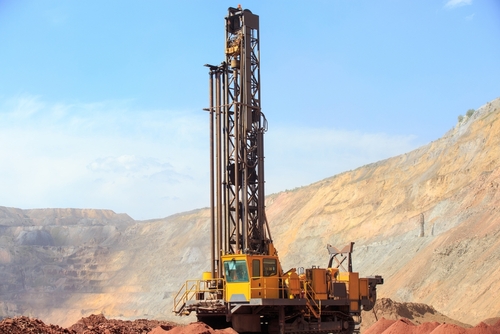
Pennsylvania Rep. Martin Causer (R-Cameron/McKean/Potter) said increasing the setback requirements for drilling natural gas wells threatens the state’s energy production, jobs, and consumers.
The chairman of the House Environmental Resources and Energy Committee made the comments after a public hearing Monday on legislation that would increase well setbacks.
“Every single day, we all rely on various sources of energy produced right here in the Commonwealth, including abundant amounts of natural gas,” Causer said. “It is disturbing that some legislators would even propose a bill that would effectively place a moratorium on one of our largest sources of energy and a major economic engine in the Commonwealth.”
House Bill 170 would increase setback requirements for unconventional wells and related infrastructure. According to the Marcellus Shale Coalition, if passed, the legislation would make as much as 99 percent of the land in the state’s top natural gas producing counties ineligible for well development.
“When you look at the cause of inflation, rising energy costs are at the top of the list. This bill would effectively shut down our energy production, causing great harm to workers and their families, as well as all of us who pay the bills to light and heat our homes, power our vehicles and more,” Causer said.
Pennsylvania Sen. Gene Yaw agreed with Causer’s assessment. The legislation, Yaw said, threatens to end the two recently announced Hydrogen Hubs before they even start.
“Pennsylvania already has among the strictest setbacks for wells in the entire nation. We have been recognized as a standard for enacting strong yet reasonable environmental safeguards that protect our natural resources,” Yaw said in a statement. “Choking off the natural gas industry in Pennsylvania will have a devastating domino effect on the 13 states and the District of Columbia who depend on Pennsylvania generating 25% of the electric power in the PJM grid. Moreover, the hydrogen hub projects which have been the subject of numerous accolades by the Administration during the past two weeks, and the billions of dollars involved, are dead on arrival without a continuing natural gas industry.”
The bill is not supported by the state Department of Environmental Protection (DEP) either. The agency said the bill was based on debunked information from a 2020 grand jury report.
“In many aspects the grand jury report is both factually and legally inaccurate,” the DEP wrote in its response to the report. “If the grand jury had been presented with complete and credible evidence, as well as the applicable law, it likely would have never written the report in its current form. The citizens of Pennsylvania need to know the report is unreliable and does not support the grand jury’s recommendations.”
The setback recommendations within the report are not supported by any established source, and appear to be chosen randomly, the agency said.
David Callahan, president of the Marcellus Shale Coalition, testified before the hearing that the current setback, in combination with other regulations, are sufficient.
“The setback distances complement the significant well site and well bore construction standards in place to protect the environment and public health,” Callahan said. “The host of legislative and regulatory requirements that govern every step of the unconventional well development process are among the most stringent in the nation, including the requirement for multiple layers of steel casing and cementing to protect the aquifer and drinking water supplies.”